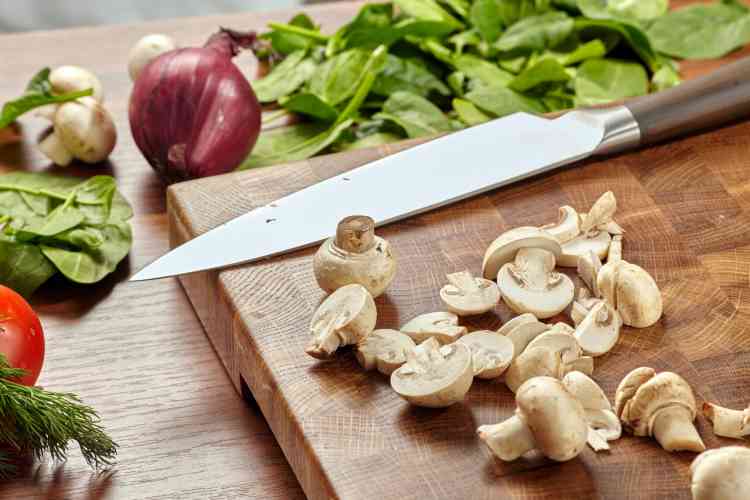For kitchen professionals, the choice of a knife can make or break the culinary experience. Among the plethora of options, German knives stand out due to their remarkable craftsmanship and impeccable quality. But how do you assess the quality indicators of a German knife? Let's explore the factors that contribute to the excellence of these knives, ensuring you make an informed decision for your kitchen.

The Importance of Steel Quality
One of the primary German knife quality indicators is the steel used in the blade. German knives are renowned for their high-carbon stainless steel, which offers a perfect blend of durability and corrosion resistance. This type of steel ensures that the knife maintains its sharpness over time, reducing the frequency of sharpening and extending the overall lifespan of the blade. A deep dive into the process of knife-making reveals how German manufacturers prioritize steel quality to produce knives that are both functional and long-lasting.
Blade Construction and Design
Another crucial aspect to consider is the construction and design of the blade. German knives often feature a full tang, meaning the blade extends through the handle, providing superior balance and strength. This design element is vital for chefs who demand precision and control during food preparation. Additionally, the edge retention of German knives is noteworthy. The combination of high-quality steel and expert craftsmanship ensures that the blade maintains its sharp edge, even with frequent use.
To understand this better, take a look at the detailed insights on edge retention provided by industry experts. This information can guide you in selecting a knife that will consistently meet your culinary needs.
Handle Ergonomics and Comfort
A knife's handle plays a significant role in its overall quality. German knives are often praised for their ergonomic handles that offer a comfortable grip, reducing hand fatigue during extended use. The materials used for the handle, such as synthetic polymers or wood, are chosen for their durability and aesthetic appeal. When selecting a German knife, consider the ergonomics of the handle to ensure it fits comfortably in your hand, allowing for safe and efficient cutting.
For more tips on choosing a knife that suits your needs, explore the buying guide which offers valuable advice on selecting the right knife for your kitchen.
Weight and Balance
Weight and balance are key factors in determining the quality of a German knife. A well-balanced knife reduces the strain on your wrist, making it easier to execute precise cuts. The weight of a knife should complement its balance, providing enough heft to cut through food with ease while maintaining control. German knives are renowned for their ideal weight distribution, contributing to their reputation as reliable kitchen tools.
For a deeper understanding of how weight and balance affect knife performance, check out this informative article that delves into the specifics of knife balance.

FAQs
What makes German knives different from other knives?
German knives are known for their high-carbon stainless steel, full tang construction, and ergonomic handle design. These features contribute to their durability, sharpness, and comfort, setting them apart from knives produced in other countries.
How often should I sharpen my German knife?
The frequency of sharpening depends on usage. However, due to their excellent edge retention, German knives typically require less frequent sharpening compared to other knives. Regular honing can help maintain the edge between sharpenings.
Are German knives suitable for all types of cooking?
Yes, German knives are versatile and can be used for a wide range of cooking tasks. Their durability and sharpness make them ideal for both professional chefs and home cooks.
In conclusion, understanding the German knife quality indicators is essential for kitchen professionals looking to invest in high-quality culinary tools. By considering factors such as steel quality, blade construction, handle ergonomics, and weight balance, you can ensure that your choice of knife will enhance your cooking experience. For more insights into the world of German knives, visit the history of German knife-making to discover how tradition and innovation combine to produce these exceptional tools.


























